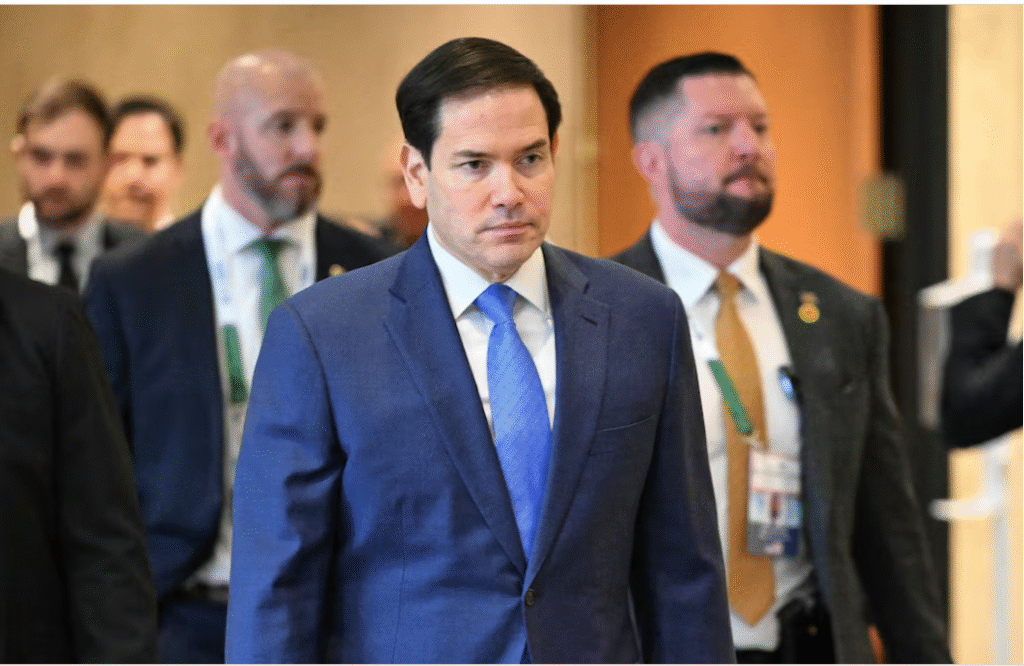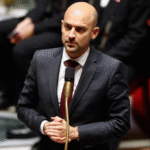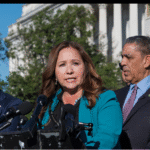NIAGARA-ON-THE-LAKE, Canada (Reuters) — Secretary of State Marco Rubio may face questions from allies over U.S. military operations in the Caribbean during a meeting of Group of Seven foreign ministers in Canada today, as concerns mount over whether strikes carried out by Washington violate international law.
The U.S. military has carried out at least 19 strikes so far against suspected drug vessels in the Caribbean and off the Pacific coasts of Latin America, killing at least 76 people.
The French foreign minister on Tuesday openly criticized U.S. strikes, while a senior European official on Wednesday said that the G7 meeting would be “the ideal place” for the U.S. military actions to be discussed, though it was not officially on the agenda.
“This is where we are supposed to exchange views on controversial issues – and what the U.S. is doing in the Caribbean is concerning for everyone,” the European official said.
The foreign ministers from the G7 wealthy nations are due to meet on maritime security on Wednesday morning.
“We have observed with concern the military operations in the Caribbean region, because they violate international law and because France has a presence in this region through its overseas territories, where more than a million of our compatriots reside,” French Foreign Minister Jean-Noel Barrot said on the sidelines of the G7.
The Trump administration insists those targeted were transporting drugs, without providing evidence or publicly explaining the legal justification for the decision to attack the boats rather than stop them and arrest those on board.
The United States has publicly justified its actions as consistent with Article 51 of the founding U.N. Charter, which requires the U.N. Security Council to be immediately informed of any action states take in self-defense against armed attack.
While acknowledging the U.S. justification for the strikes, a group of independent U.N. experts said last month: “Even if such allegations were substantiated, the use of lethal force in international waters without proper legal basis violates the international law of the sea and amounts to extrajudicial executions.”
On Tuesday, CNN reported that the United Kingdom was no longer sharing intelligence with Washington about suspected drug trafficking vessels in the Caribbean because it believes the attacks are illegal.
A State Department official said Rubio held a brief meeting with UK Foreign Secretary Yvette Cooper on the margins of the G7 ministerial meeting.
Colombian President Gustavo Petro ordered Colombian public security forces to suspend intelligence sharing with U.S. intelligence agencies until Washington stops attacking boats in the Caribbean.
Efforts to end the war in Ukraine
Rubio and G7 partners are also set to discuss Trump’s efforts to end the war in Ukraine, as the Republican president’s push to broker peace faces headwinds.
The foreign ministers met on Ukraine on Wednesday morning. Ukrainian Foreign Minister Andrii Sybiha said he and the G7 would discuss strengthening Ukraine’s long-range missile capability and scaling up investment in the innovation and defense industry.
“I will urge the G7 to further strengthen our air defenses, and energy assistance to our people … I hope that today we will take steps to make Russia end its war against Ukraine sooner and achieve peace through strength,” Sybiha told reporters.
Canadian Foreign Minister Anita Anand earlier announced additional sanctions against Moscow, targeting Russia’s drone program, liquefied natural gas entities and vessels from Russia’s shadow fleet, among others, according to a statement.
The move comes after Washington late last month hit Rosneft and Lukoil, Russia’s two biggest oil companies, with sanctions in a move underlining Washington’s intent to squeeze Russia financially and force it towards a peace deal that would end the 3-1/2-year war.
Trump has sought a rapprochement with Moscow and held a summit in Alaska with Putin in August. But he has backed calls for an immediate ceasefire in Ukraine with forces at their present positions, while Moscow has said it wants Kyiv to yield more territory.
By REUTERS
Reporting by Daphne Psaledakis, Maria Cheng, David Ljunggren, Michelle Nichols and Simon Lewis Editing by Humeyra Pamuk and Alistair Bell
Our Standards: The Thomson Reuters Trust Principles.



